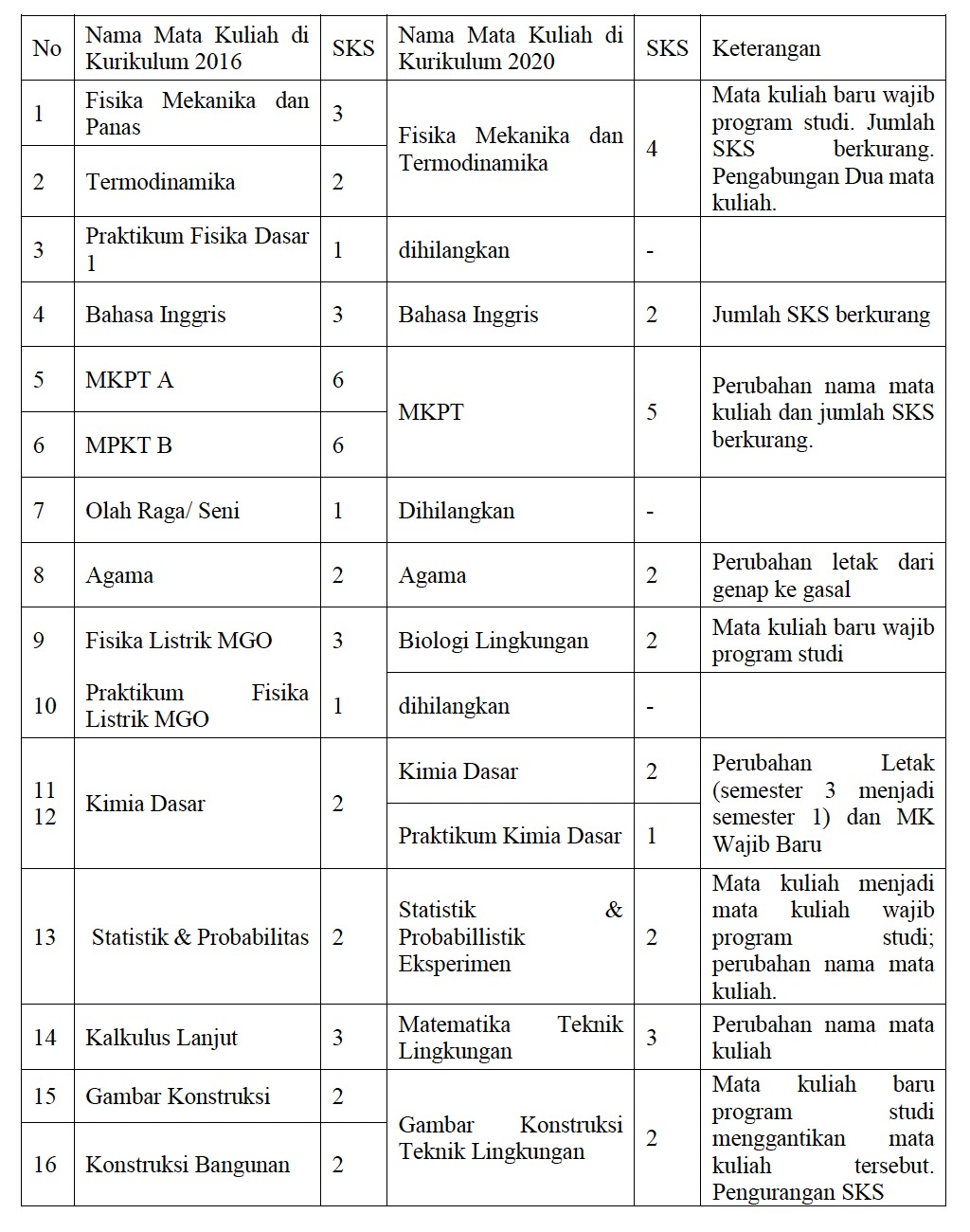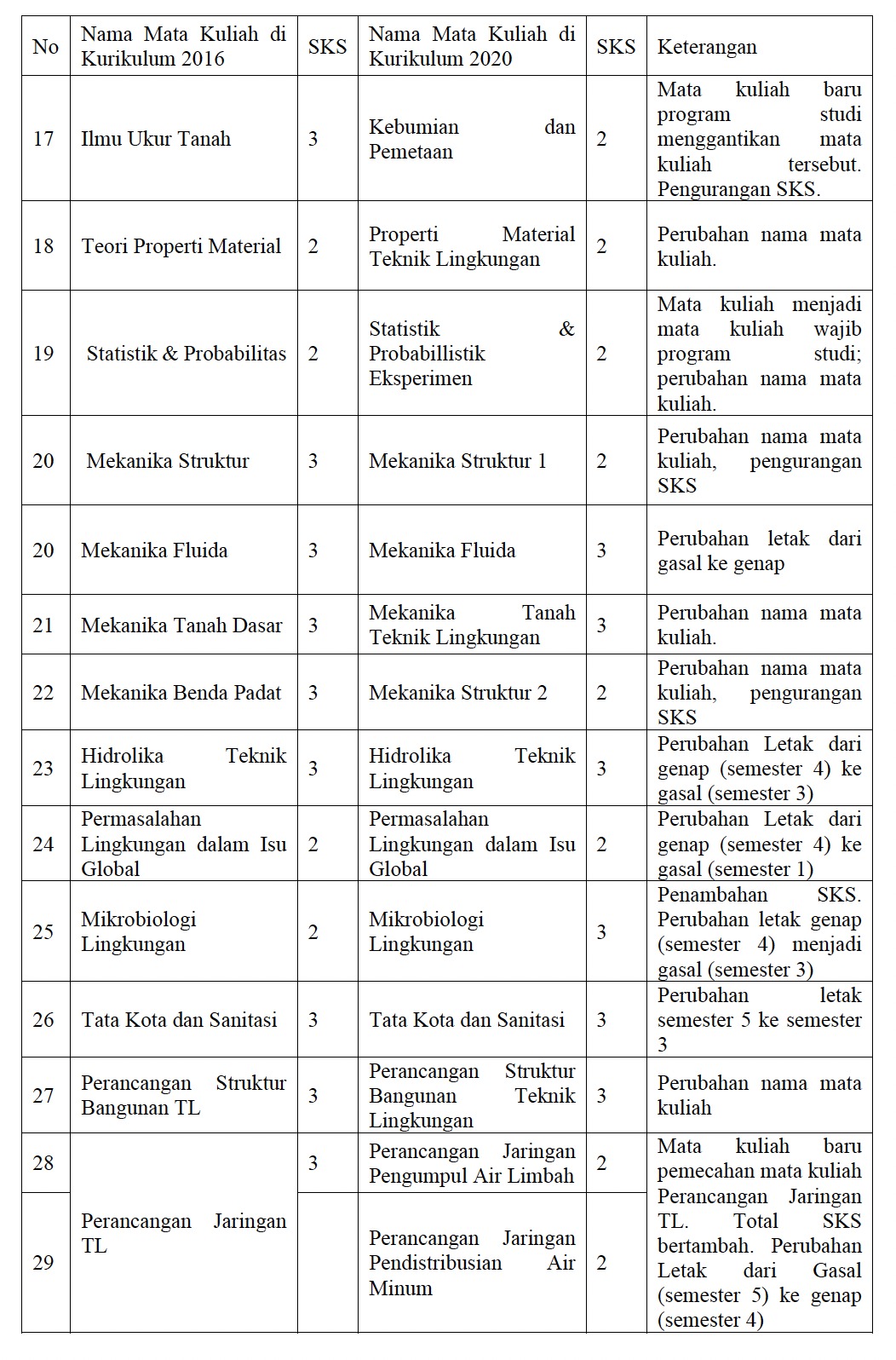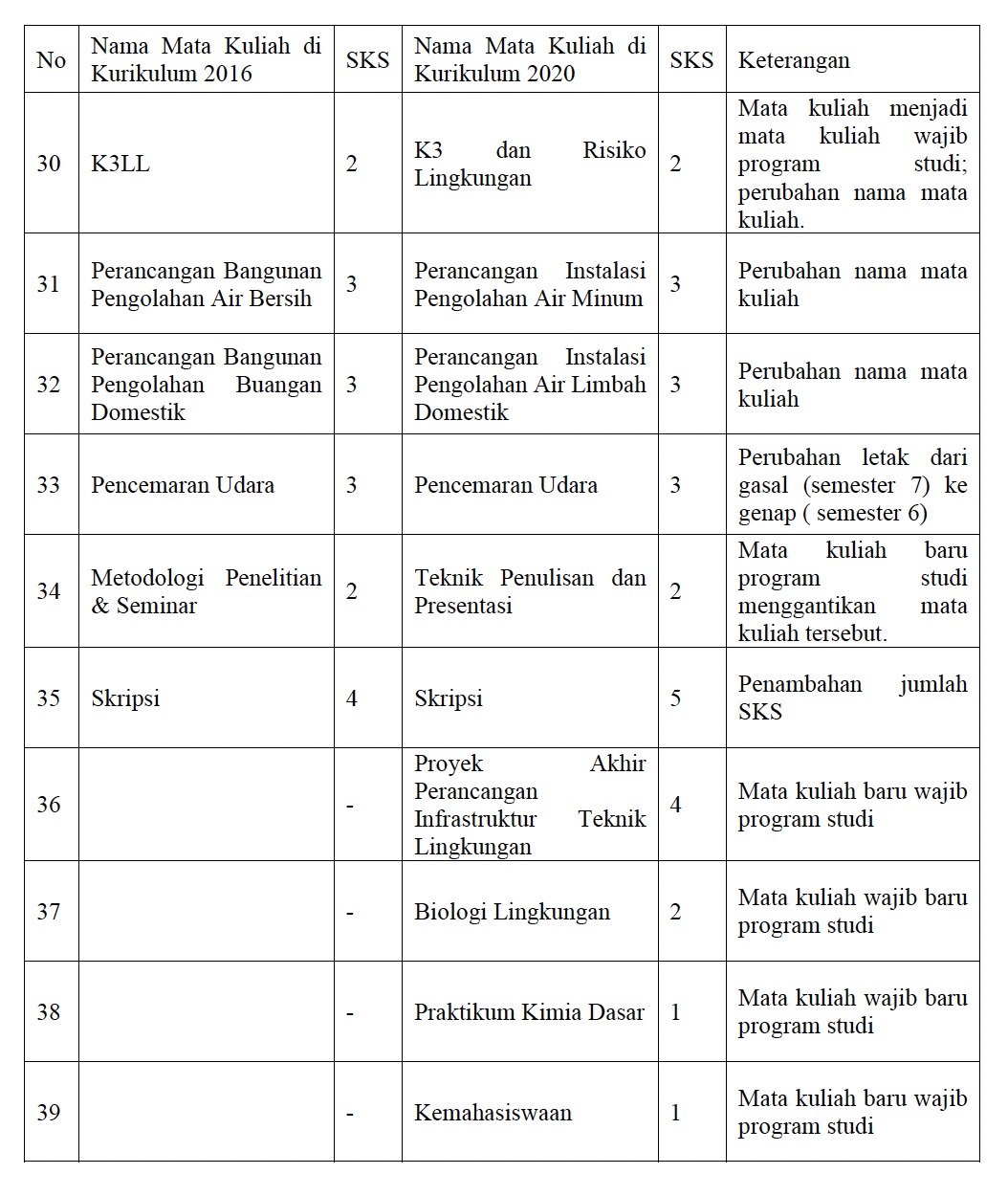Program Studi
Sarjana Teknik Lingkungan
Visi & Misi Program Studi Sarjana Teknik Lingkungan Dedikasi Pendidikan Terbaik
Visi :
“Sebagai pusat unggulan ilmu pengetahuan dan teknologi di bidang teknik lingkungan yang berperan di pasar global”
Misi :
- Menghasilkan lulusan yang menguasai ilmu teknik lingkungan dengan dasar teknik sipil dan dasar teknik lingkungan yang kuat serta berstandar internasional
- Memberikan sumbangan pikiran secara aktif melalui penelitian maupun pada masyarakat yang berorientasi pada pengembangan sarana dan prasarana di bidang teknik lingkungan yang senantiasa mempertimbangkan keserasian hubungan manusia dengan alam
- Membentuk dan membina mahasiswa yang mempunyai kepemimpinan dan kepribadian yang mandiri, serta mampu bersosialisasi, berkomunikasi secara efektif, dan menjunjung tinggi etika Profesi.
Career Prospects Menjadi Bagian Dalam Meningkatkan Kualitas Hidup Masyarakat

Konsultan Lingkungan
Alumni Teknik Lingkungan dapat bekerja menjadi konsultan lingkungan untuk memberikan saran tentang cara mengelola dan meminimalisasi dampak lingkungan dari kegiatan yang dilakukan seperti polusi air dan udara, pengelolaan limbah, dan konservasi sumber daya alam.
Pengawas dan Manajer Lingkungan di Industri
Melakukan pemantauan, analisa dan evaluasi dampak lingkungan dari kegiatan industri, dan bekerja untuk memastikan kegiatan tersebut mematuhi standar dan regulasi lingkungan yang berlaku
Pekerjaan di Sektor Pemerintahan
Alumni Teknik Lingkungan dapat bekerja di berbagai departemen pemerintah baik aspek teknis dan non teknis di bidang lingkungan, seperti pengelolaan sumber daya alam, perencanaan kota, dan pengelolaan bencana
Pekerjaan di Organisasi Non-Pemerintah (NGO)
Alumni Teknik Lingkungan dapat bekerja dengan NGO yang fokus dengan isu-isu lingkungan, seperti perubahan iklim, konservasi, dan advokasi lingkungan
Pendidikan dan Pelatihan
Bekerja di universitas, lembaga penelitian, atau institusi pendidikan untuk melakukan studi tentang isu-isu lingkungan serta menyediakan pelatihan dan pengembangan kapasitas (skill) di bidang lingkungan
Perencanaan dan Pengembangan Wilayah
Terlibat dalam perencanaan dan pengembangan proyek yang mempertimbangkan dampak lingkungan dan keberlanjutan
Audit Lingkungan
Melakukan audit untuk menilai kepatuhan lingkungan perusahaan atau organisasi
Wiraswasta
Dapat membuka usaha di bidang lingkungan serta menjual produk penelitian
Graduate Profile 1. Menjadi lulusan sarjana teknik lingkungan yang memiliki karir di bidang perencanaan, perancangan, pelaksanaan atau pengendalian sistem teknik lingkungan dengan memperhatikan aspek sosial, ekonomi dan lingkungan. 2. Menjadi sarjana Teknik Lingkungan yang beretika, profesional, siap melanjutkan pendidikan ke jenjang lebih tinggi, serta mengembangkan kemampuannya guna menjawab dinamika perkembangan dunia teknik lingkungan.
Video Profile Lihat Program dan Temui Mahasiswa Kami
Expected Learning Outcome Mencapai Hasil Melalui Pembelajaran yang Efektif
- Mampu menerapkan ilmu matematika, sains, dan dasar ilmu teknik serta spesialisasi teknik lingkungan untuk digunakan dalam menyelesaikan masalah teknik lingkungan yang kompleks (Engineering knowledge)
- Mampu menganalisis masalah teknik lingkungan yang kompleks dengan menggunakan pinsip dasar matematika, sains, dan ilmu keteknikan guna mendapatkan kesimpulan yang dapat dipertanggungjawabkan (Problem analysis)
- Mampu mendesain solusi dari masalah teknik lingkungan yang kompleks serta mampu mendesain sistem/komponen/proses teknik lingkungan sesuai dengan kebutuhan yang disyaratkan dengan mempertimbangkan kesehatan dan keselamatan umum, sosial budaya dan lingkungan yang berkelanjutan (Design or development of solutions)
- Mampu melaksanakan investigasi masalah teknik lingkungan yang kompleks dengan menggunakan dasar pengetahuan dan metodologi penelitian; dimulai dari desain percobaan, analisis dan interpretasi data, dan sintesis informasi yang diperoleh guna mendapatkan kesimpulan yang valid (Investigation)
- Mampu menggunakan alat bantu rekayasa dan alat TIK modern yang terkait dengan masalah teknik lingkungan yang kompleks (Modern tool usage)
- Mampu melakukan penalaran secara kontekstual atas masalah sosial, kesehatan dan keselamatan, hukum, budaya serta atas tanggung jawab yang terkait dari praktek teknik lingkungan profesional dan dari solusi atas masalah teknik lingkungan yang kompleks (The engineer and society)
- Mampu mengevaluasi dampak serta keberlanjutan solusi dari masalah teknik lingkungan yang kompleks dalam tinjauan sosial dan lingkungan (Environment and sustainabillity)
- Mampu menerapkan prinsip etika dan profesionalisme serta norma dalam bidang teknik lingkungan (Ethics)
- Mampu berperan efektif sebagai individu, dan sebagai anggota atau pemimpin dari suatu kelompok multidisiplin (Individual and team work)
- Mampu mengomunikasikan secara efektif aktivitas teknik lingkungan yang kompleks kepada komunitas teknik lingkungan atau kepada masyarakat umum; meliputi kemampuan menulis laporan dan dokumen, melakukan presentasi dengan efektif, serta memberi instruksi dengan jelas (Communication)
- Mampu menerapkan prinsip manajemen teknik dan pengambilan keputusan atas dasar pertimbangan ekonomi dalam pekerjaan pribadi dan kelompok serta dalam pengelolaan proyek (Project management and finance)
- Mampu melakukan pembelajaran mandiri sepanjang hayat (Lifelong learning)
- Mampu mengidentifikasi ragam upaya wirausaha yang bercirikan inovasi dan kemandirian yang berlandaskan etika

2024
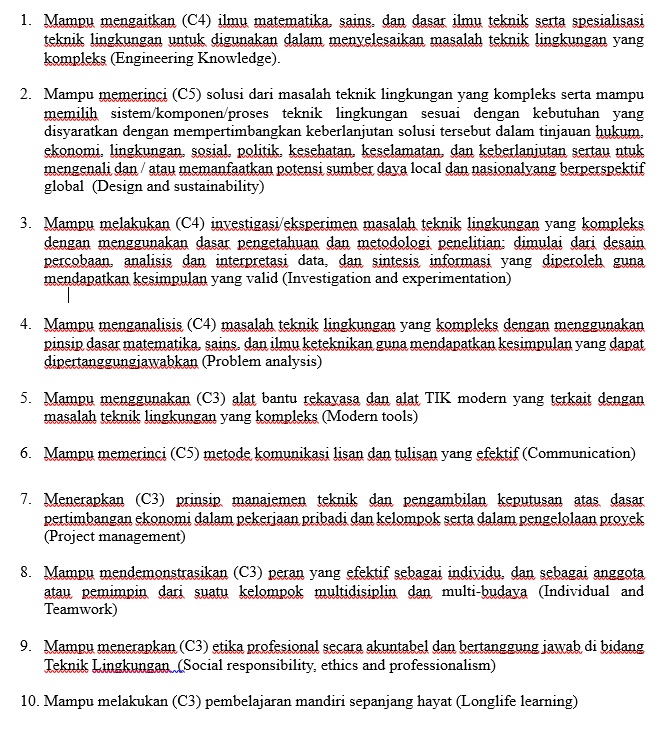
2020
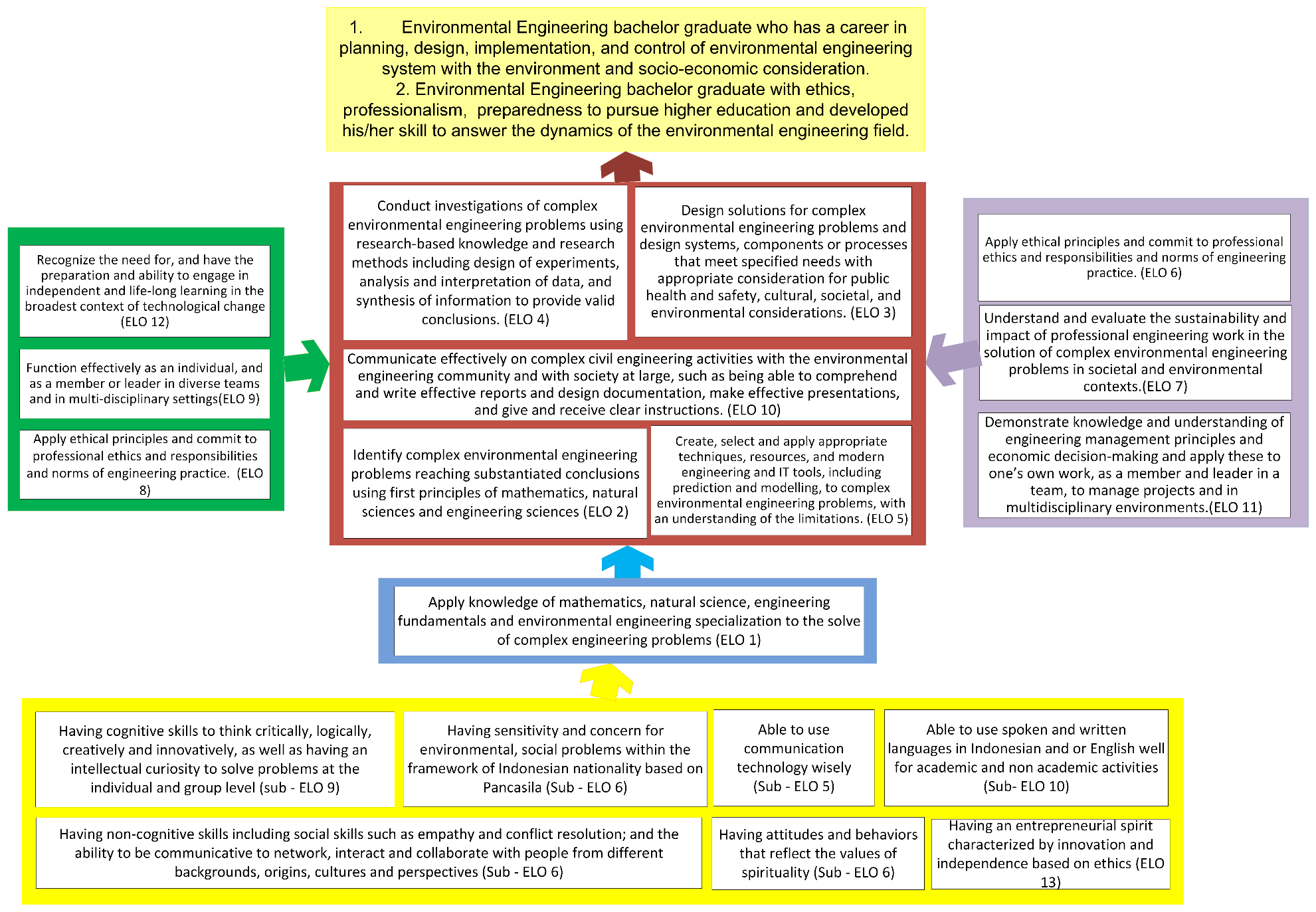
2024
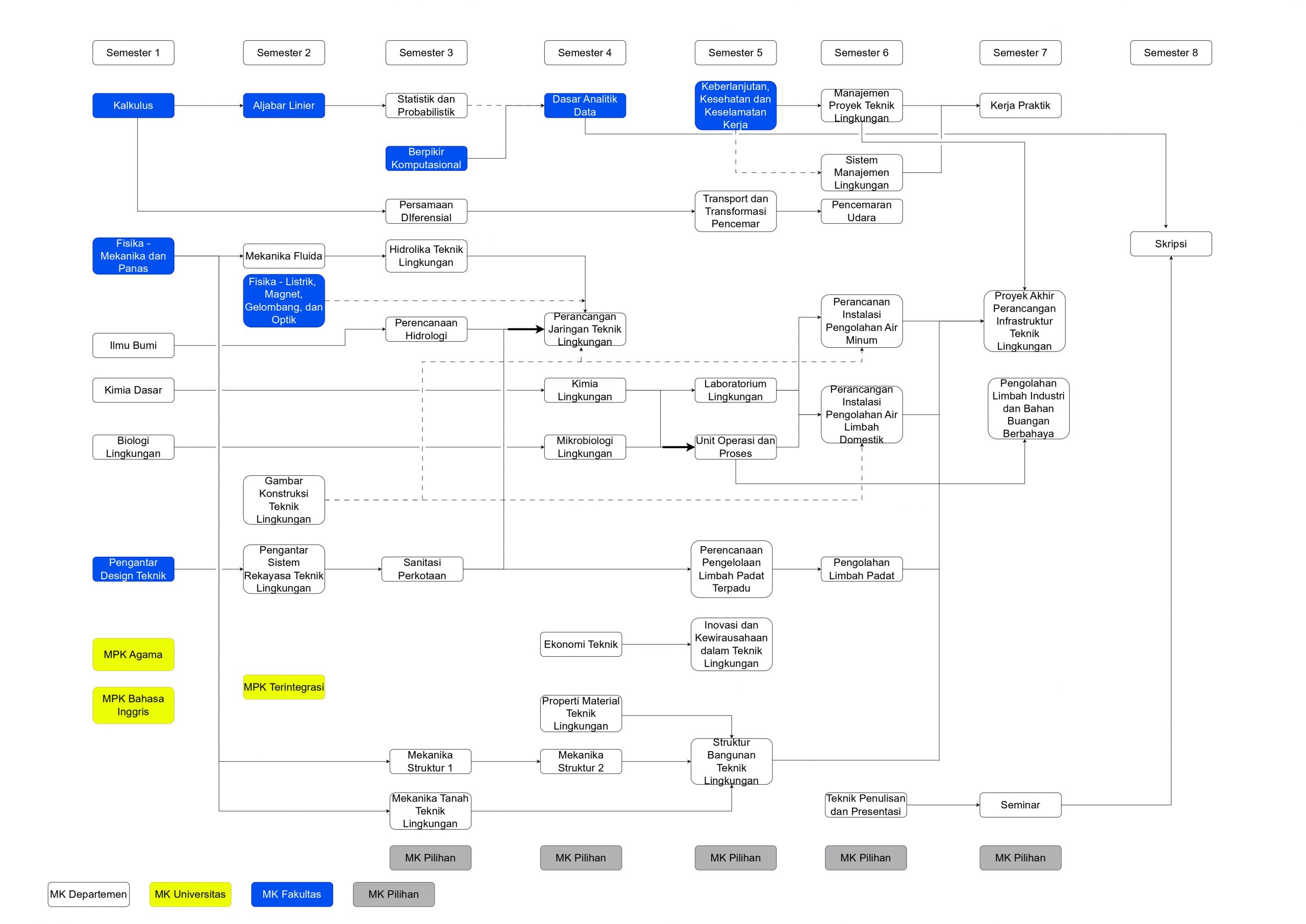
2020
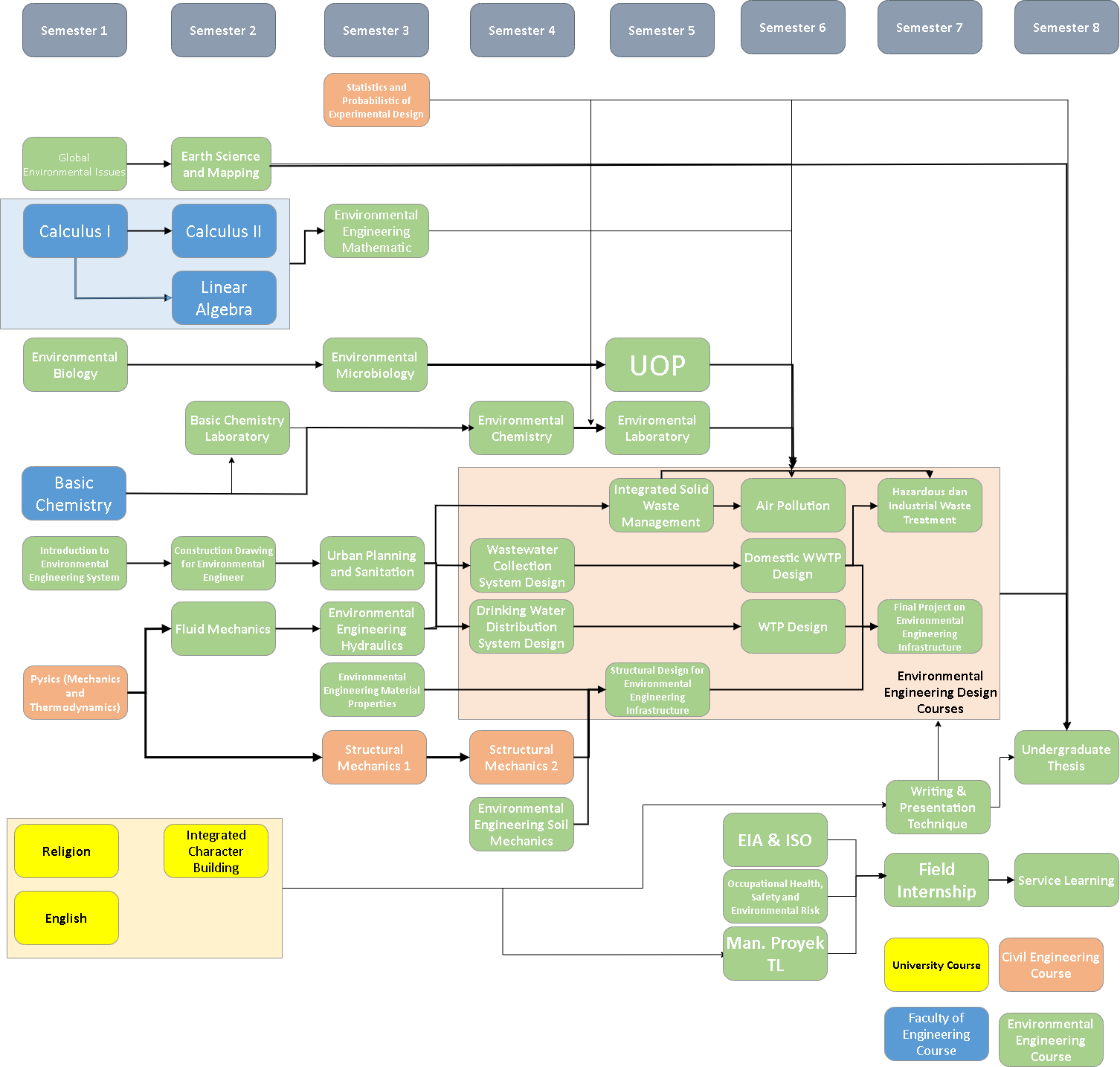
2024





2020
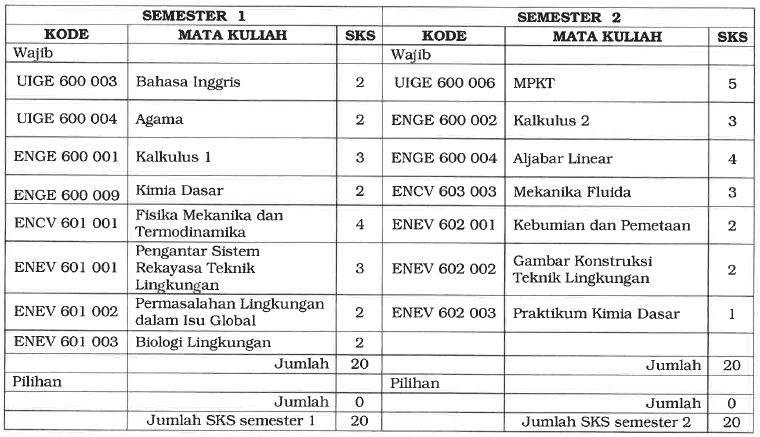
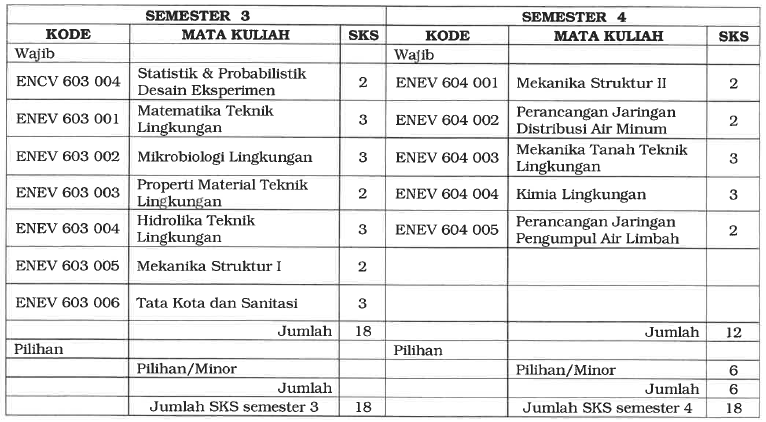
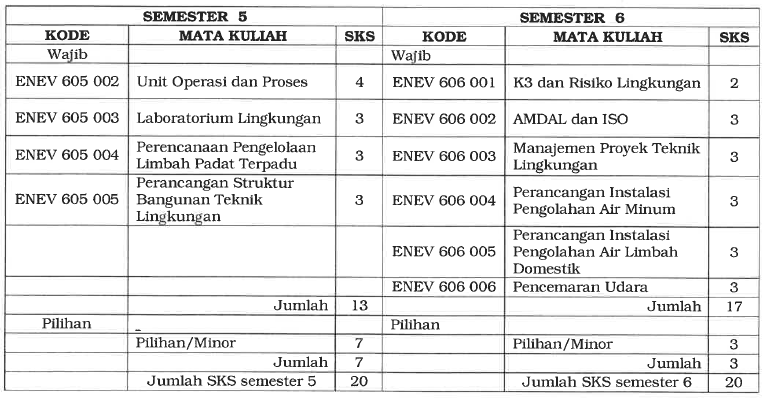
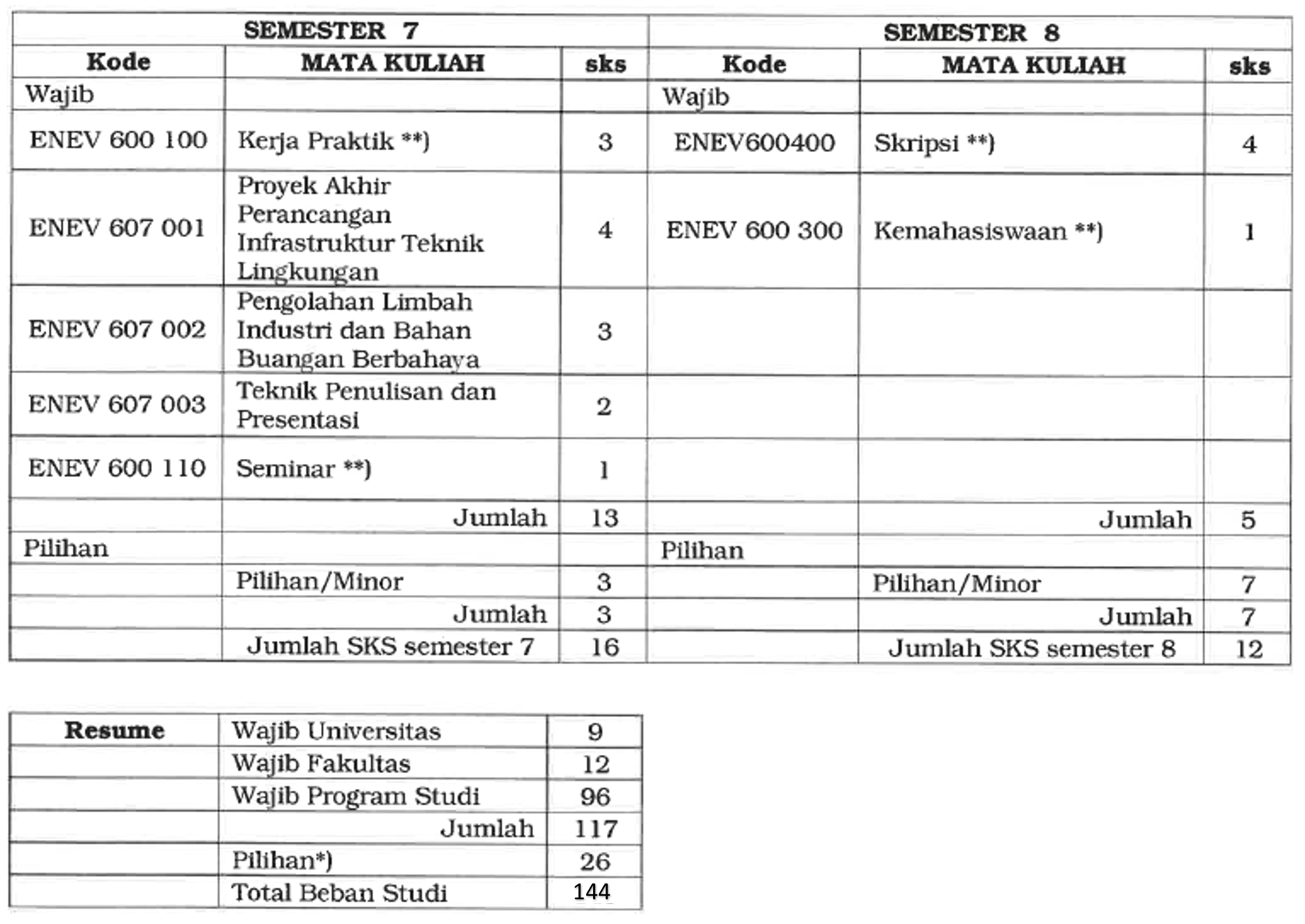
2024
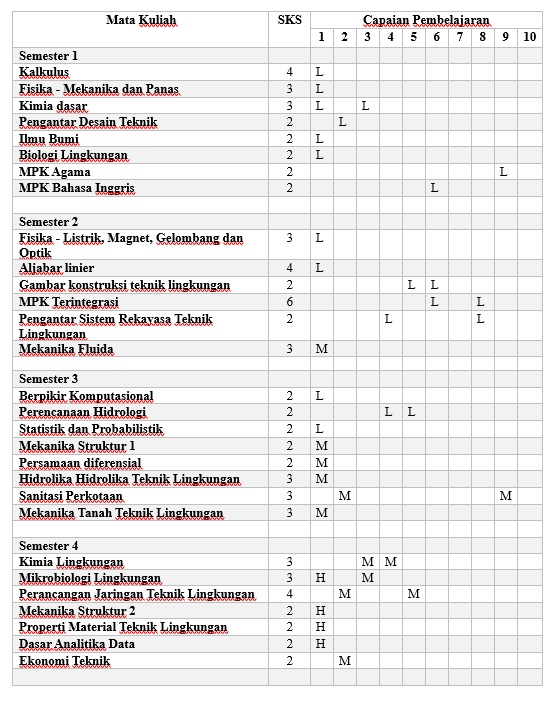
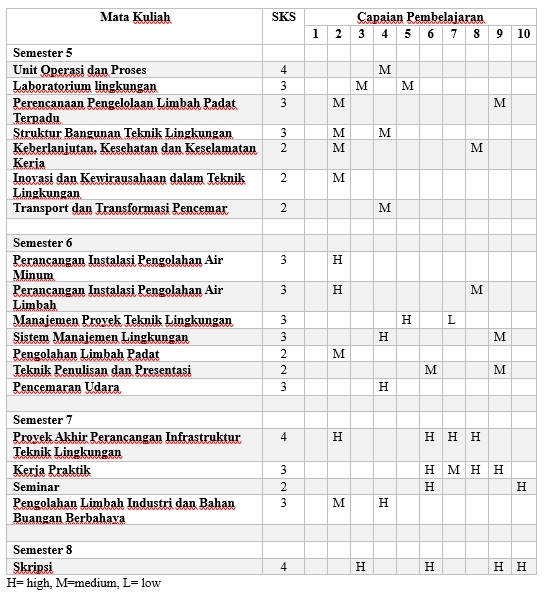
2020
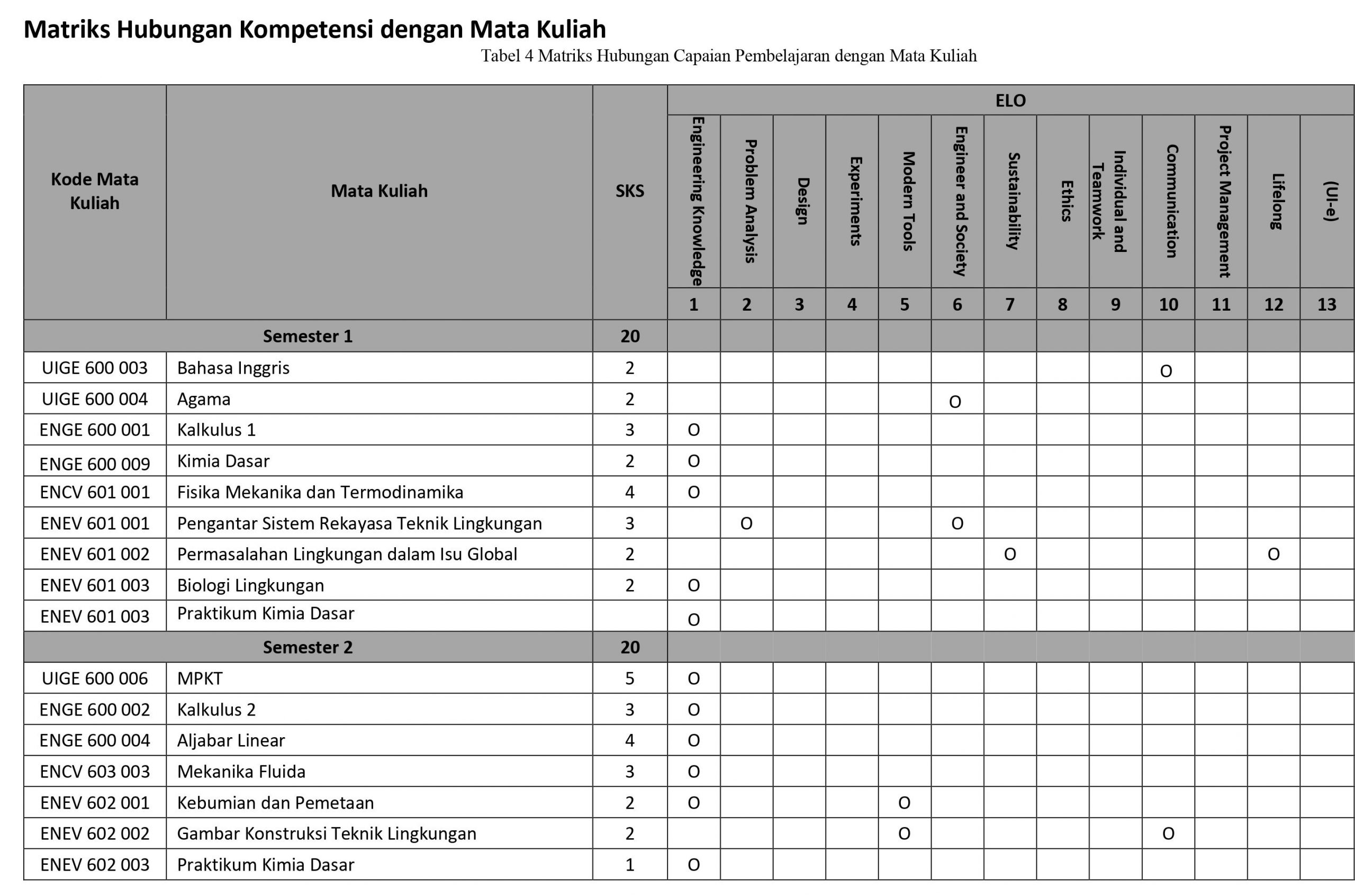
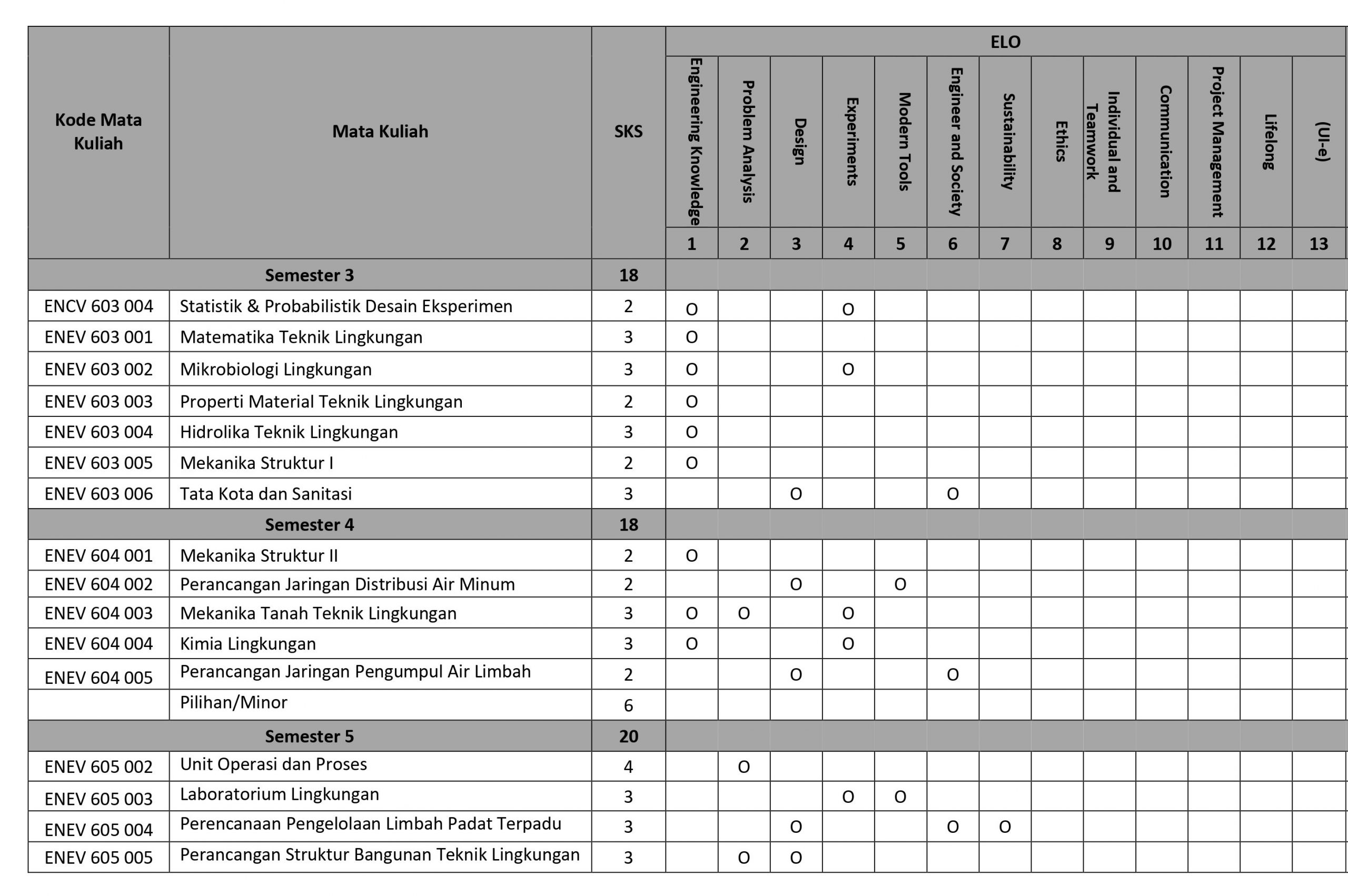
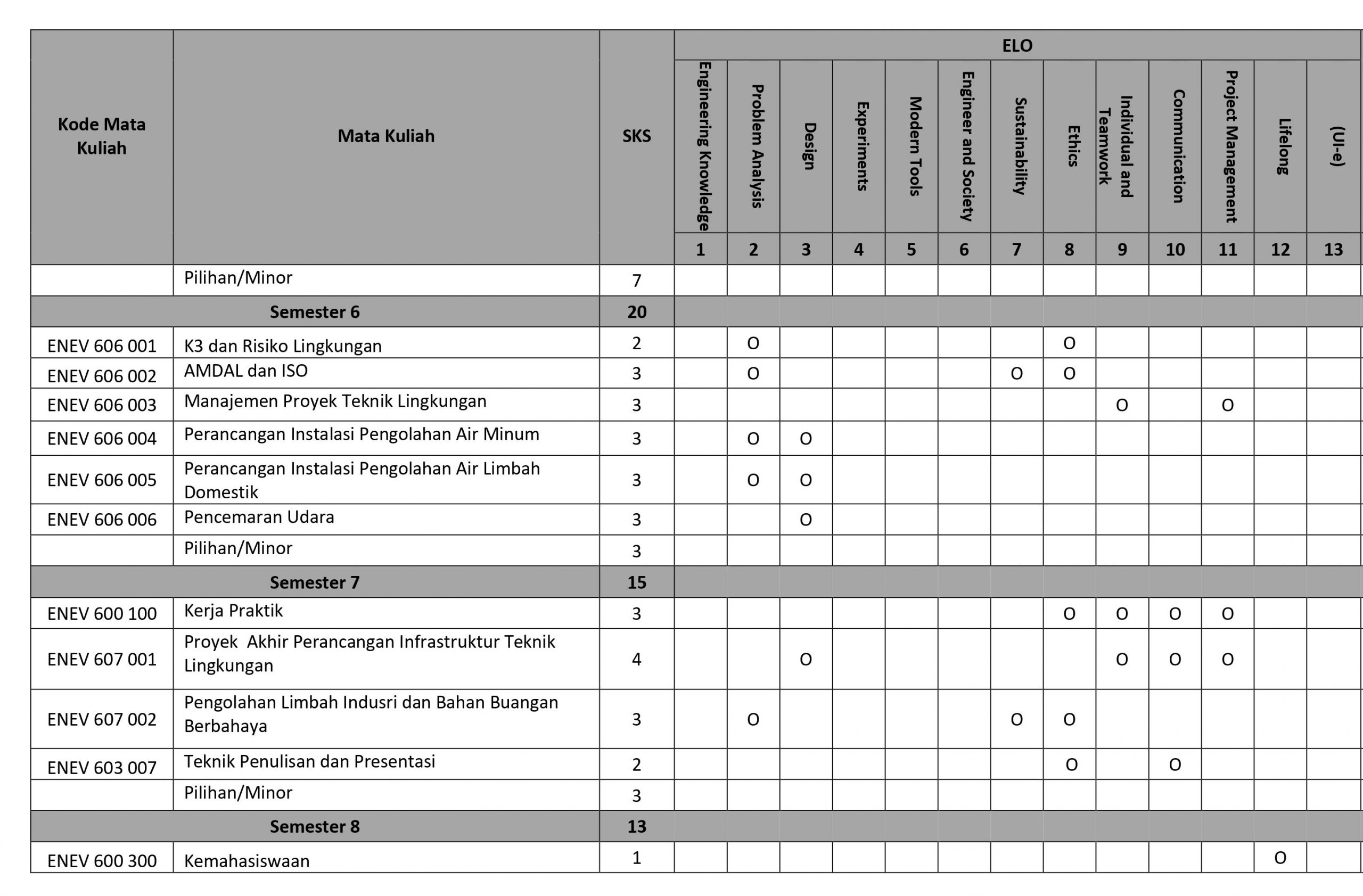
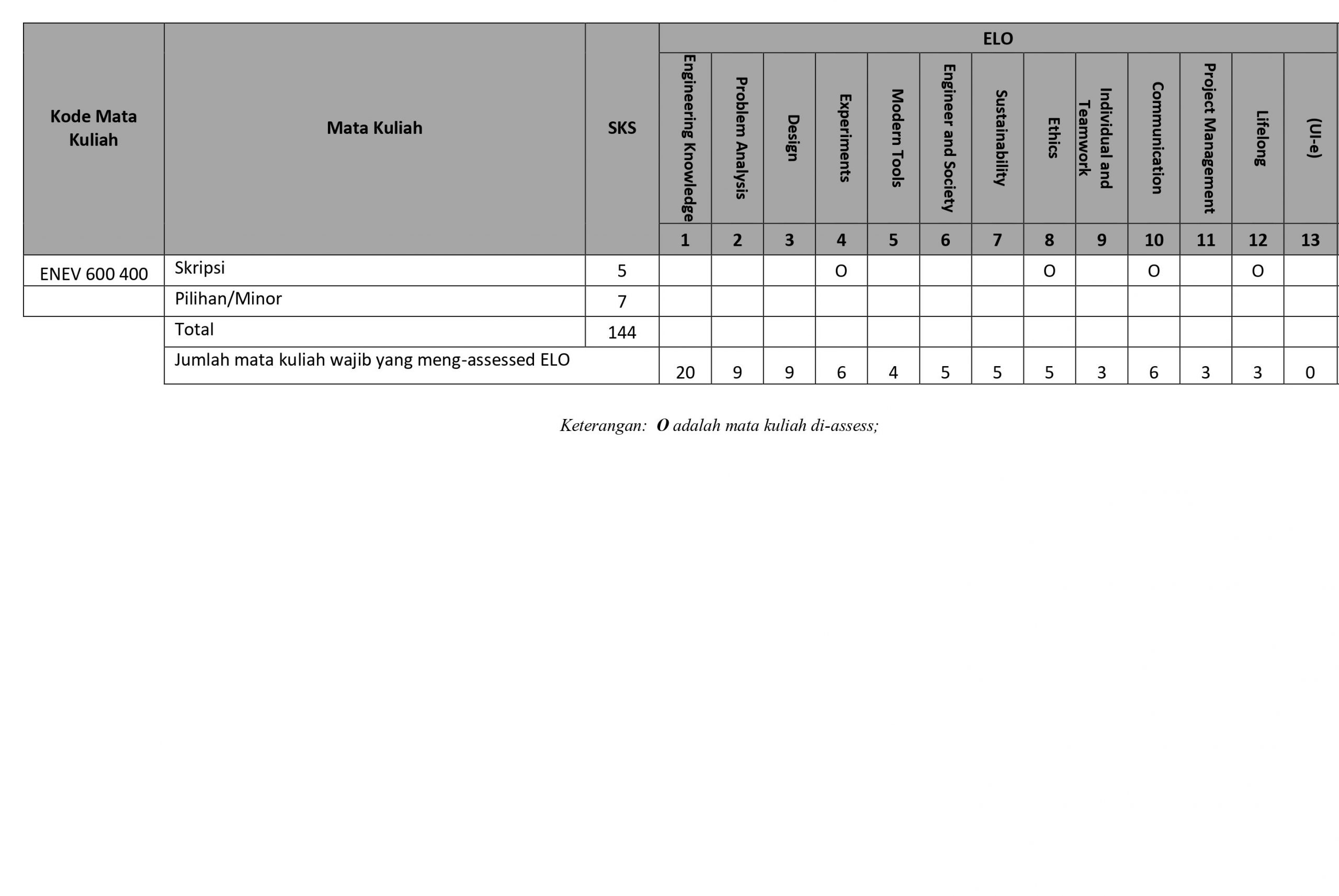
2024
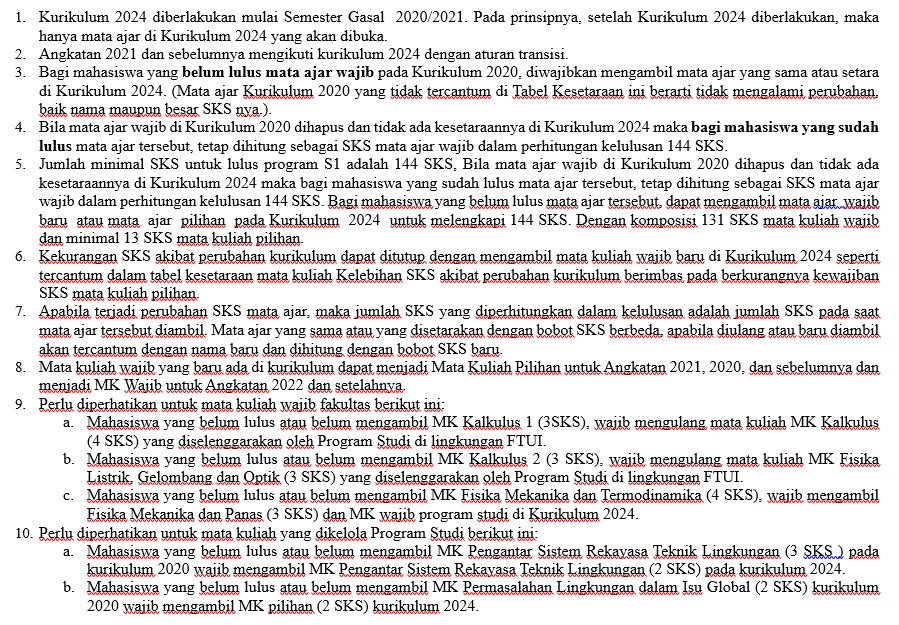
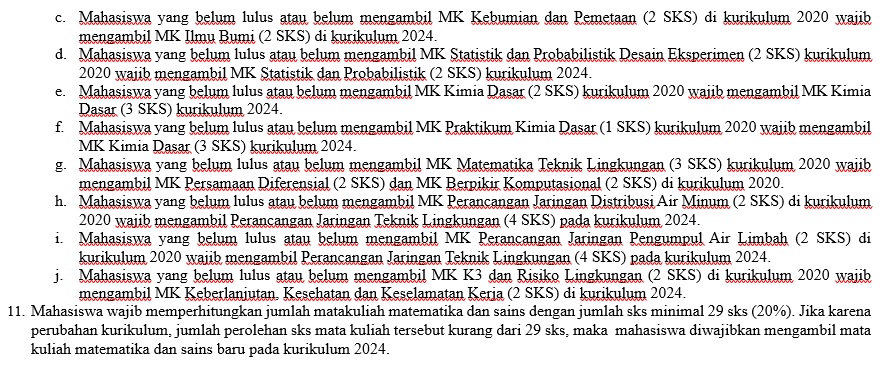
Aturan Transisi Kurikulum 2016 ke Kurikulum 2020

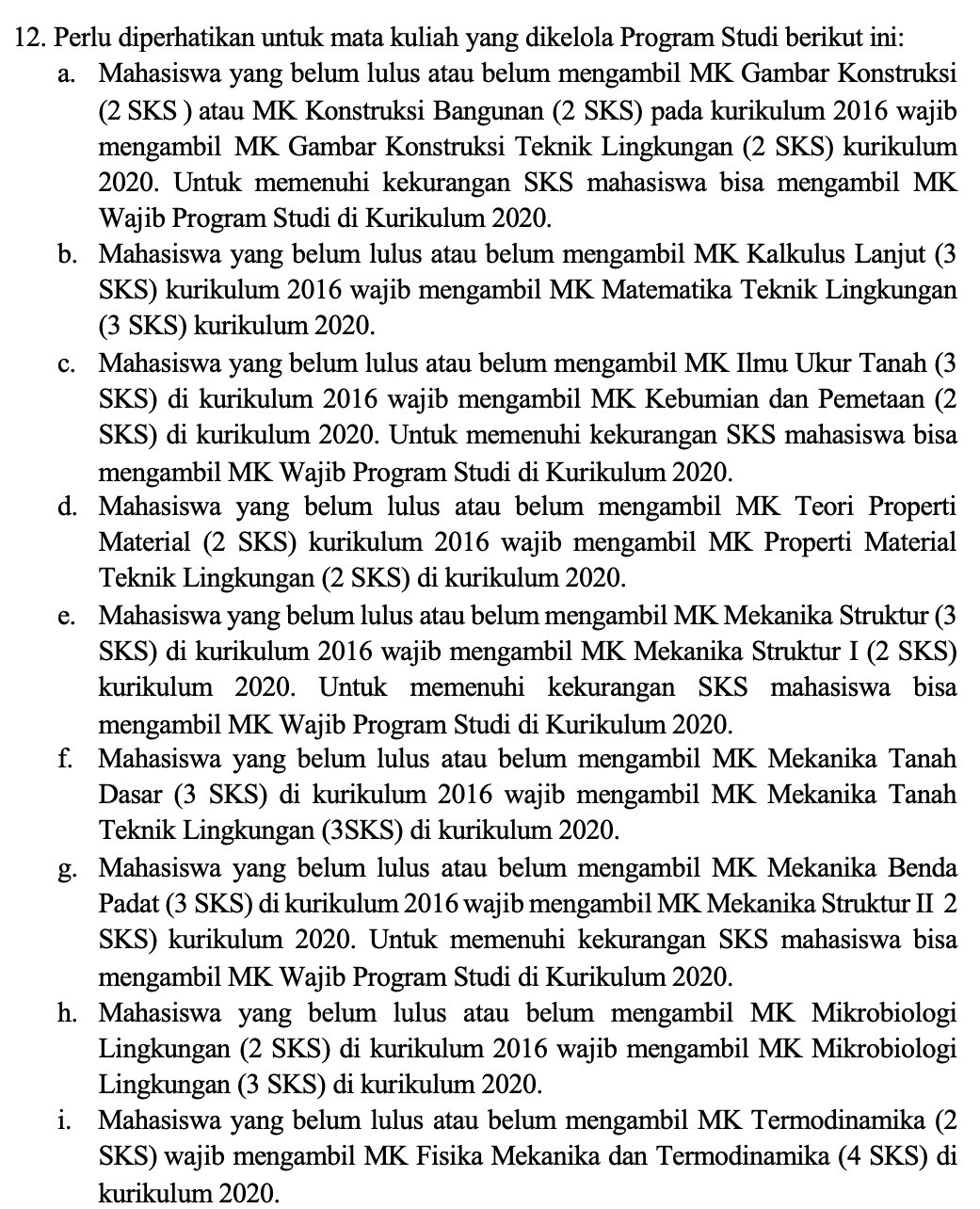
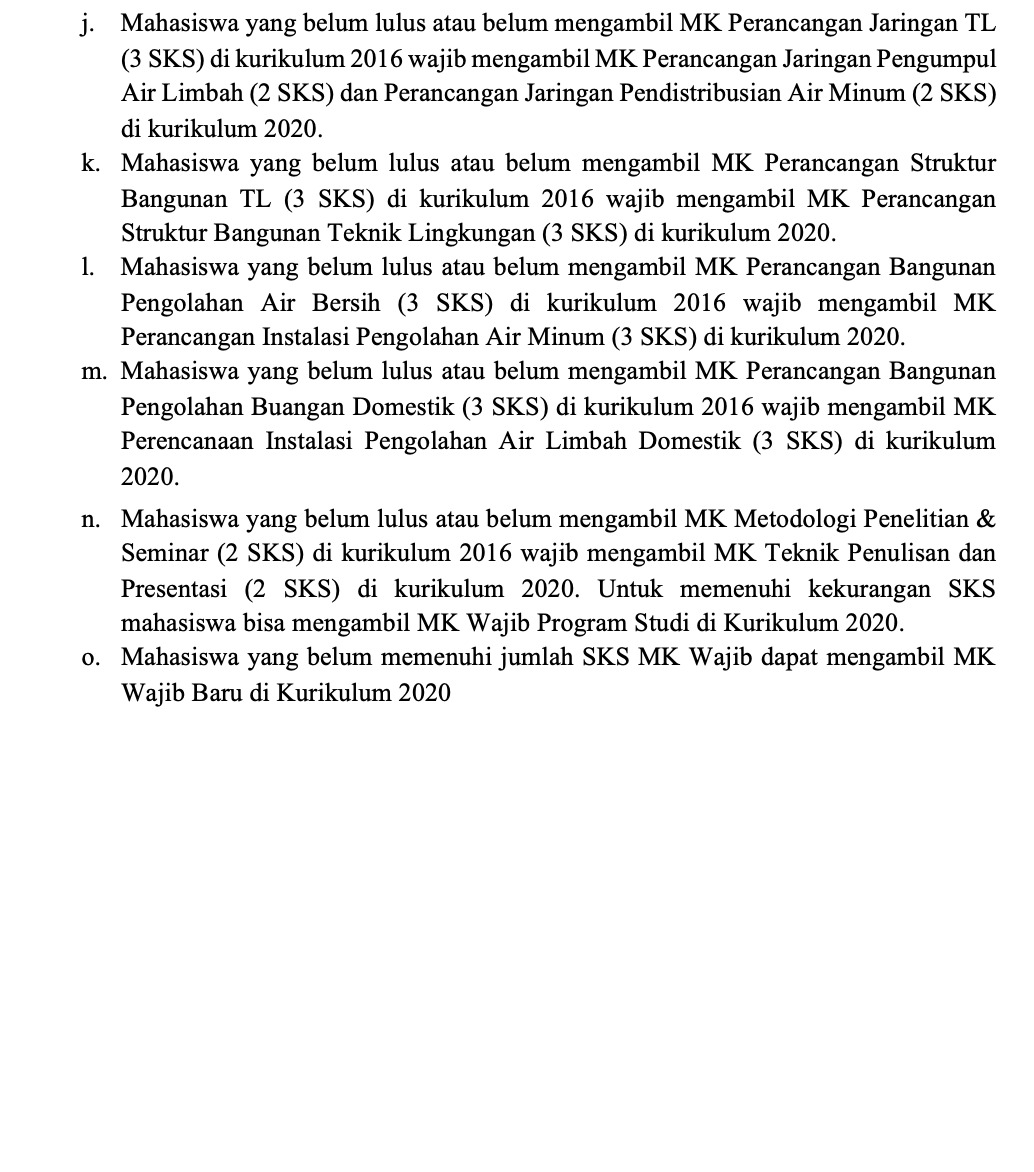
2024
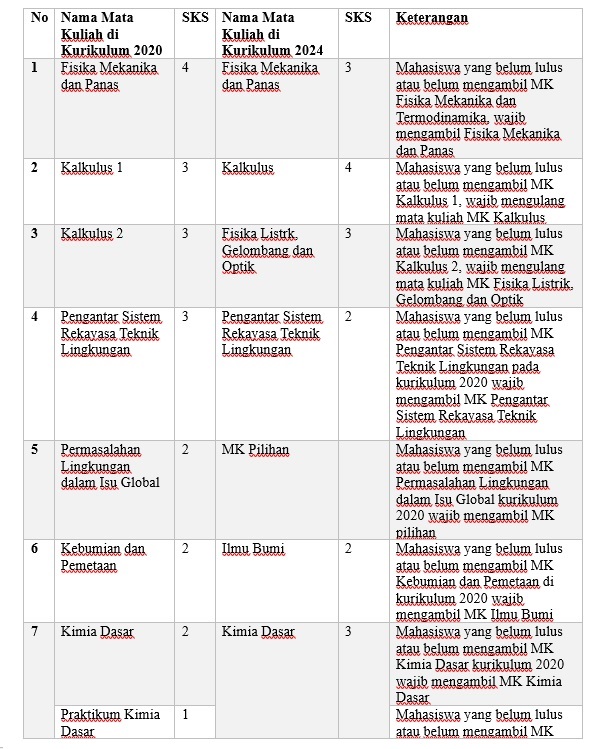
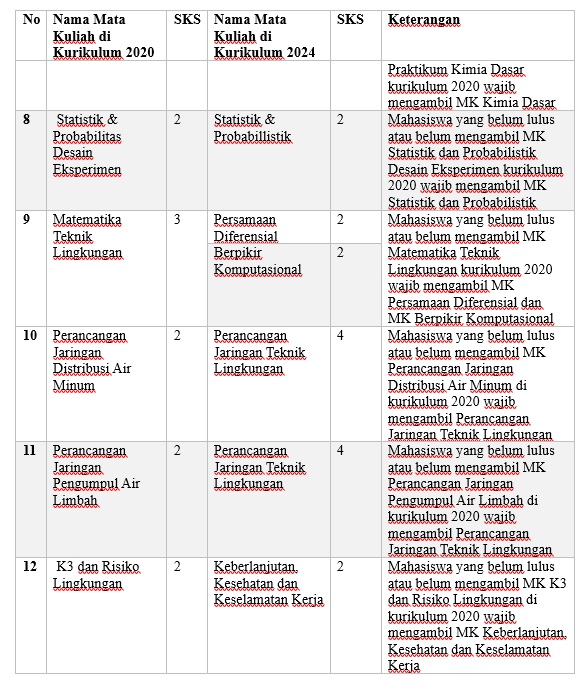
2020
